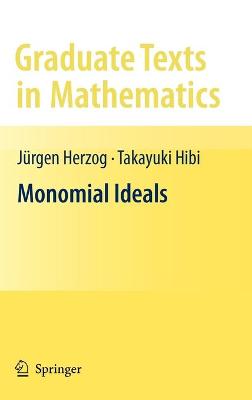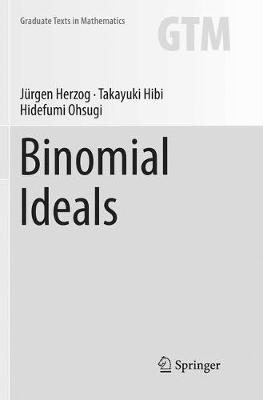Graduate Texts in Mathematics
2 primary works
Book 260
This book demonstrates current trends in research on combinatorial and computational commutative algebra with a primary emphasis on topics related to monomial ideals.
Providing a useful and quick introduction to areas of research spanning these fields, Monomial Ideals is split into three parts. Part I offers a quick introduction to the modern theory of Gröbner bases as well as the detailed study of generic initial ideals. Part II supplies Hilbert functions and resolutions and some of the combinatorics related to monomial ideals including the Kruskal—Katona theorem and algebraic aspects of Alexander duality. Part III discusses combinatorial applications of monomial ideals, providing a valuable overview of some of the central trends in algebraic combinatorics. Main subjects include edge ideals of finite graphs, powers of ideals, algebraic shifting theory and an introduction to discrete polymatroids. Theory is complemented by a number of examples and exercises throughout, bringing the reader to a deeper understanding of concepts explored within the text.
Self-contained and concise, this book will appeal to a wide range of readers, including PhD students on advanced courses, experienced researchers, and combinatorialists and non-specialists with a basic knowledge of commutative algebra.
Since their first meeting in 1985, Juergen Herzog (Universität Duisburg-Essen, Germany) and Takayuki Hibi (Osaka University, Japan), have worked together on a number of research projects, of which recent results are presented in this monograph.
Book 279
The book begins with a brief, self-contained overview of the modern theory of Groebner bases and the necessary algebraic and homological concepts from commutative algebra. Binomials and binomial ideals are then considered in detail, along with a short introduction to convex polytopes. Chapters in the remainder of the text can be read independently and explore specific aspects of the theory of binomial ideals, including edge rings and edge polytopes, join-meet ideals of finite lattices, binomial edge ideals, ideals generated by 2-minors, and binomial ideals arising from statistics. Each chapter concludes with a set of exercises and a list of related topics and results that will complement and offer a better understanding of the material presented.
Binomial Ideals is suitable for graduate students in courses on commutative algebra, algebraic combinatorics, and statistics. Additionally, researchers interested in any of these areas but familiar with only the basic facts of commutative algebra will find it to be a valuable resource.

